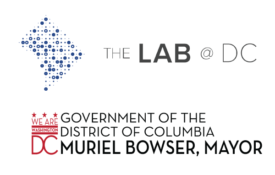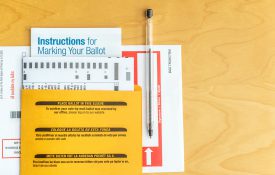-

Addressing Racial Equity Through Human-Centered Design
An effort underway by the government of the District of Columbia demonstrates how acts as simple as redesigning municipal forms can make government more equitable for all residents. Visit Page
-

Making Votes Count: It’s as Much About Psychology (and Ballot Design) as Security
Poorly designed ballots can prevent voters from understanding, seeing, using, and processing information correctly, which can lead to voting failures that alter the outcome of elections. Applied psychologists and human factors engineers can make a real difference in ensuring that ballots accurately capture voter intent. Visit Page
-

New Research From Clinical Psychological Science
A sample of research on voter perceptions of Donald Trump’s personality, depression and self-esteem, trauma exposure, digital-media use and depressive symptoms, pathological personality traits, social anxiety disorder and social interactions, and how to eat healthier. Visit Page
-

Voters’ Preexisting Opinions Shift to Align with Political Party Positions
The views expressed by political party leaders can change how individual voters feel about an issue, according to findings from a longitudinal study of voters in New Zealand. Visit Page
-
Why We Should Lower the Voting Age to 16
The young people who have come forward to call for gun control in the wake of the mass shooting at their high school in Parkland, Fla., are challenging the tiresome stereotype of American kids as Visit Page
-
Teaching Current Directions in Psychological Science
Featured Articles: “Understanding Mind From Matter: What Does Prehistoric Farming Say About Your Prefrontal Cortex?” and “To Err Is Human: The Psychological Science of Voting Mistakes” Visit Page

